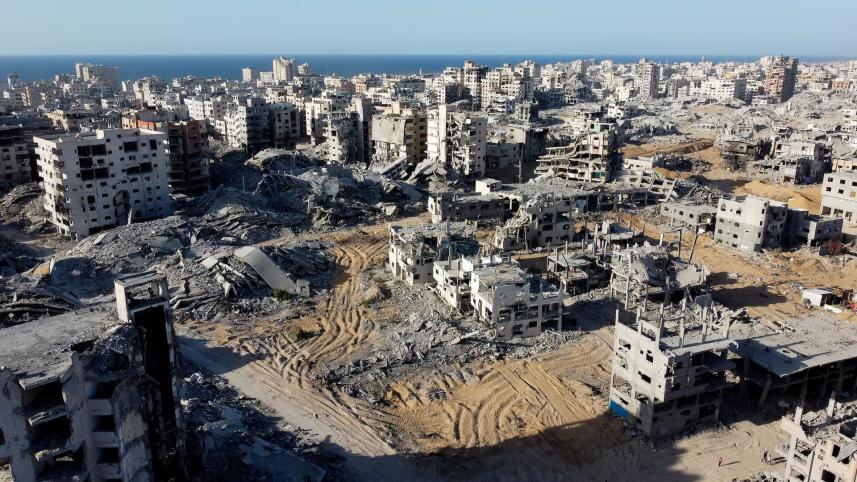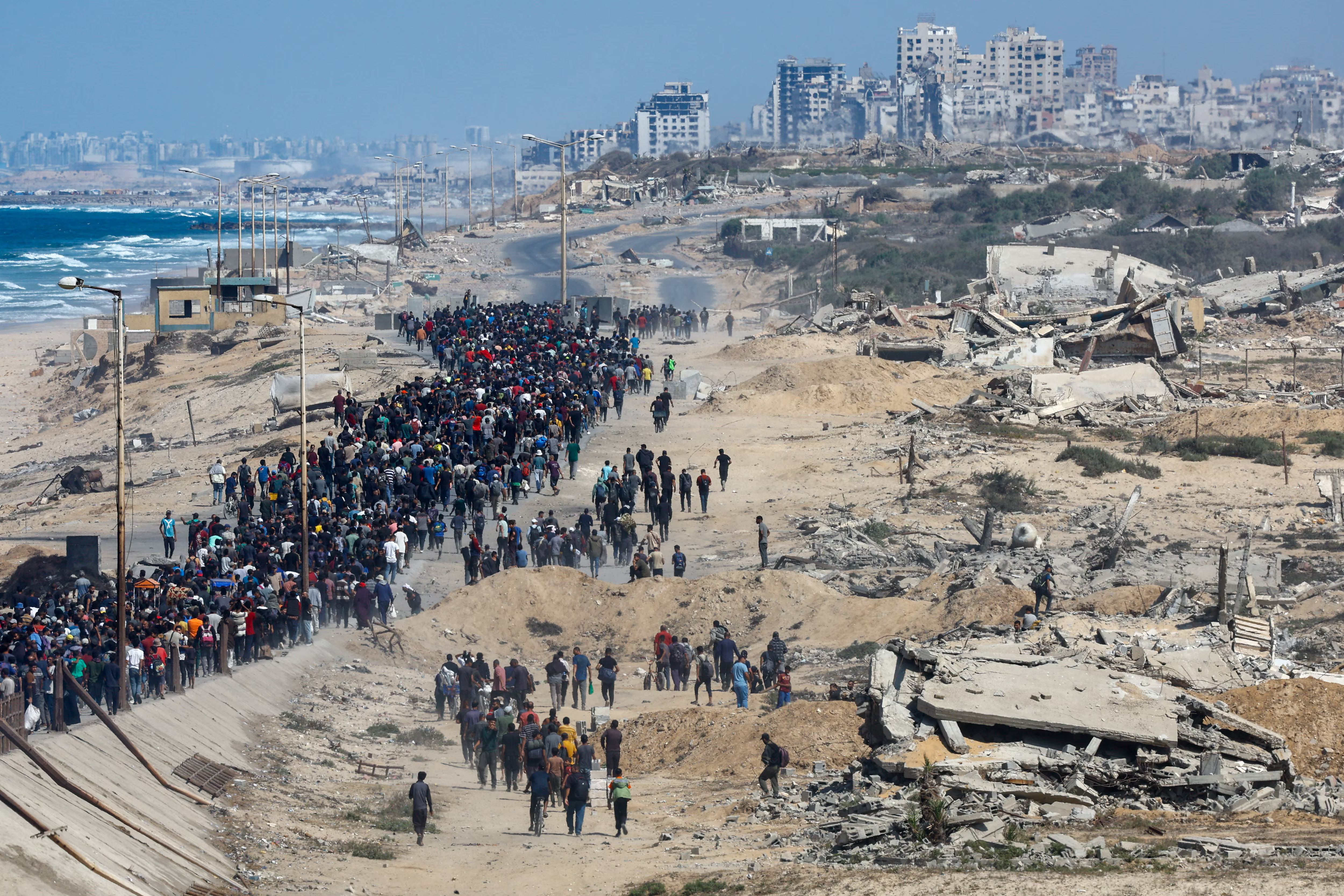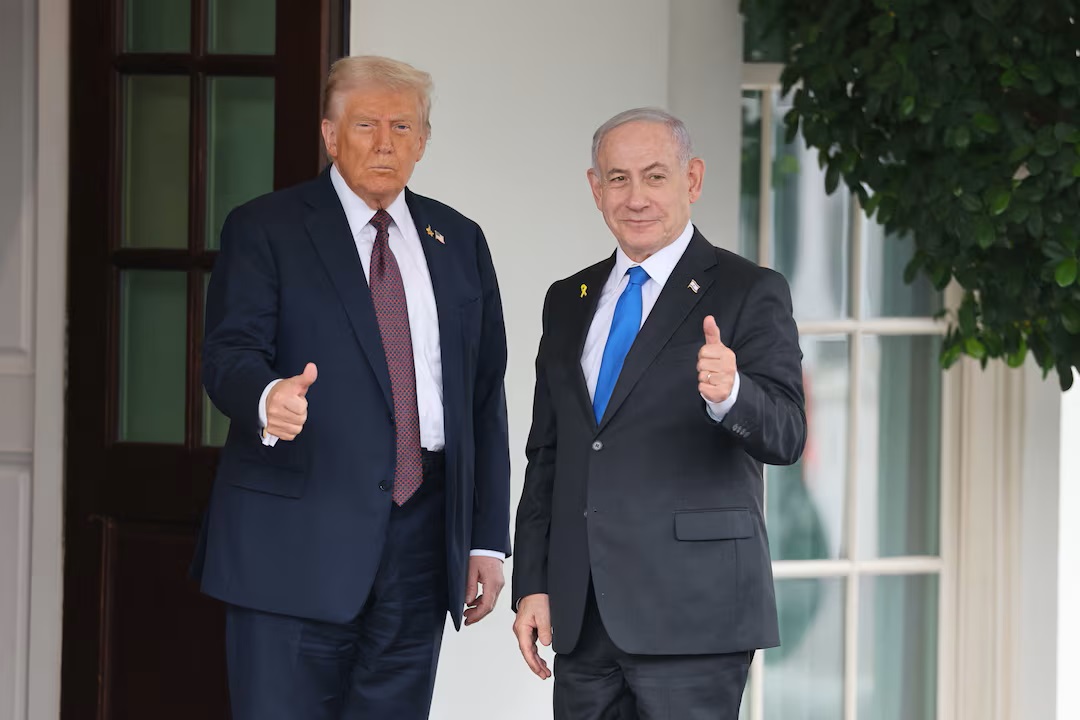Can Trump’s Gaza ceasefire redefine peace in Middle East?

When President Donald Trump announced his ceasefire deal for Gaza, the world's cameras turned towards Cairo. The American president, flanked by leaders from Egypt, Qatar, and Turkey, declared a "new era" for the Middle East—words that have been uttered too many times by too many presidents. The agreement, signed by 20 world leaders, looked impressive on paper. Yet, it left open the very questions that have haunted every peace plan before it: what comes after the silence of the guns? Who will rebuild Gaza? And more importantly, who will rule it?
Meanwhile, US Vice President JD Vance said the Gaza ceasefire remains stable despite renewed clashes. During his recent Israel visit, he and other US officials urged Netanyahu to begin talks for a lasting peace, as Trump warned regional states could intervene militarily if Hamas breaks the truce.
Earlier, Trump's speech in the Israeli Knesset had all the familiar showmanship—grand claims, self-assured tone, and a pledge that the hardest part was already over. "The rebuilding begins now," he said, as if reconstruction were as simple as signing a contract. But the details of his Gaza plan remain complex. It promises reconstruction, yet no clear funding mechanism is revealed. It speaks of an interim governing authority, possibly involving Tony Blair, but without defining its powers or the role of Palestinians themselves. Even the status of Gaza's borders—air, sea, and land—remains in the shadows.
The ceasefire, to President Trump's credit, has held longer than sceptics predicted. Yet, the deeper architecture of peace—the part that deals with sovereignty and accountability—was left untouched. Israel continues to control entry and exit points and restricts aid. Gaza's agricultural heartlands are still under Israeli military occupation. And while President Trump boasts of ending a "3,000-year-old conflict," Israel's government refuses even to endorse a two-state framework. It seems, what the president has built is not peace, but a pause.
To understand why that matters, it helps to think through the lens of political and theoretical complexity. John Rawls, in "The Law of Peoples", reminds us that a just peace requires inclusion—no community should be left outside the framework of deliberation. Gaza's future, decided without Gazans, fails that test. Edward Said's The Question of Palestine warned decades ago that external peace formulas often translate into political erasure. Chantal Mouffe, in On the Political, argued that depoliticised consensus—the illusion of harmony—often masks real asymmetries of power. Similarly, Hannah Arendt's The Human Condition pointed to the danger of reducing politics to administration, where moral responsibility dissolves into managerial efficiency. And, finally, Kenneth Waltz's Man, the State, and War offers a sobering insight—that systemic structures, not individual intentions, often dictate the outcomes of global conflicts. Together, these works suggest that Trump's Gaza deal, while dramatic, might be less about resolving injustice and more about rearranging it.
There's a quieter story unfolding beneath the headlines—a kind of diplomatic reshuffle. President Trump's ceasefire came just as regional and Western powers started rethinking engagement with Gaza. Gulf states, Europe, and Washington all see Gaza's reconstruction as a mix of humanitarian duty and strategic opportunity. Still, optimism runs up against some hard questions. Who controls the money? Who ensures fairness? The deal talks plenty about rebuilding, but little about justice or limits on weapons. Without open rules or real oversight, reconstruction could turn into another project that looks good on paper but avoids the deeper wounds. It's a pattern the world knows too well—stability rushed ahead of fairness, peace planned in boardrooms while those who lived through the war wait for their voices to count.
The notable exclusion of Palestinians from recent peace discussions raises quiet concerns that hopes for lasting stability may be limited.
What's missing in this discussion is a clear sense of how international law will be applied—whether accountability measures, investigations, or sanctions will be pursued consistently by all sides. There's also little mention of how Gaza's instability could influence neighbouring countries like Egypt, Jordan, and Lebanon, each facing its own security pressures. And finally, the question of political representation remains open: who will be authorised to make decisions for Gaza once reconstruction begins, and how those choices will reflect the needs of people living through the aftermath.
Still, there's a strange paradox. For all its flaws, Trump's Gaza initiative might signal the beginning of Israel's strategic isolation. Some observers note that for the first time, a US president—not known for subtlety—appears to have sidelined Benjamin Netanyahu. Israel's long-standing impunity, while far from over, has faced its first symbolic challenge. If that shift takes root, it won't be only because of Trump, but because the global political mood is changing.
Outside the corridors of power, that mood is already visible. Across universities and public spaces, younger generations are rejecting the idea that Gaza's suffering is a geopolitical inevitability. Much like the anti-apartheid movement of the 1980s, public opinion is inching towards moral clarity. Governments may move slowly, but societies are beginning to see Gaza as the ethical centre of the modern world order—the place where the legitimacy of power is being tested.
President Trump's approach to Gaza straddles symbolism and strategic intent. It may offer temporary stability, yet without addressing the underlying structures of occupation, lasting transformation remains unlikely. Past efforts suggest that pauses in conflict often reflect tactical recalibration rather than durable resolution.
The vision of a "new Middle East" faces the challenge that sustainable peace requires mechanisms of accountability, dialogue, and inclusive governance. Gaza, still under blockade and enduring deep humanitarian strain, will serve as the key indicator of whether such a framework can be realised. Any political gains will be measured not by announcements or ceremonies, but by the region's ability to maintain security, dignity, and equity over time.
Syed Raiyan Amir is senior research associate at the KRF Center for Bangladesh and Global Affairs (CBGA). He can be reached at raiyancbga@gmail.com.
Views expressed in this article are the author's own.
Follow The Daily Star Opinion on Facebook for the latest opinions, commentaries and analyses by experts and professionals. To contribute your article or letter to The Daily Star Opinion, see our guidelines for submission.



 For all latest news, follow The Daily Star's Google News channel.
For all latest news, follow The Daily Star's Google News channel. 

Comments